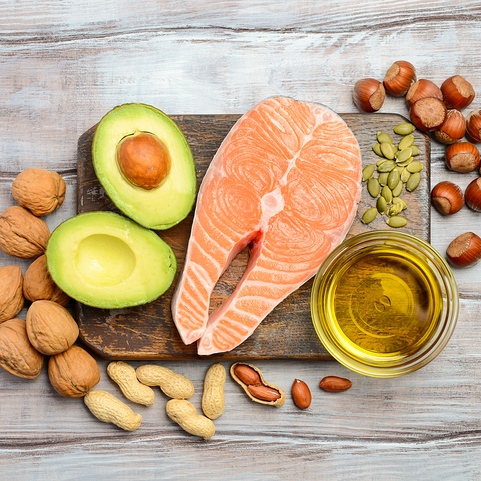Are you getting enough Omega 3’s for your body?

Fish oil supplements and the phrase “eat more omegas 3’s” has become more common these days. This is also because more research has been directed at Omega 3 fatty acids in the human body and its impact on well-being.
In this article I would like to help you better understand what Omega 3’s are, why they are good for us and what foods are rich in omega 3’s. Contrary to some weight loss diets out there, fats are essential to our bodies and we needs fats in order to function. Not all fats are good for our body, but in lieu of this article, Omega 3’s get the spotlight and the praise!
Omega 3: The term omega 3 fatty acids refers to long chain polyunsaturated fatty acids. The predominant omega-3 fatty acid in our typical diet is ALA, alpha linoleic acid, which is mainly consumed via plant-based sources (vegetable oils such as soybean and canola).
The omega 3 fatty acids that we can also consume are predominantly EPA and DHA. Since EPA and DHA are found mostly in fish/seafood, our low intake in North America, has most people walking around low in these anti-inflammatory fatty acids. Comparatively, people in Japan, whose intake is quite high, have higher levels and in contrast tend to be healthier. ALA, which is more commonly ingested in North America, can be converted to EPA and DHA in the human body by the liver; albeit, the conversion efficiency is limited and we must not rely on that for healthy amounts in the body. Thus, the most effective way to increase EPA and DHA is to consume them in fish, fish supplements, algae or algal oils enriched with EPA and DHA.
Heath Benefits:
Maintaining optimal levels of omega 3 fatty acids is important for a variety of reasons throughout life. Higher levels of EPA and DHA omega 3 fatty acids have been associated with a significantly lower risk of death due to cardiovascular disease and increase in life expectancy.
In adults, higher blood levels of EPA/DHA omega 3 have been associated with a significantly lower risk for psychological distress, depression, cognitive impairment, age-related dementia, certain cancers and various other inflammatory disorders.
Try consuming more of these foods each week which have a high amount of omega 3 fatty acids:
Fish such as mackarel, salmon, cod liver oil, herring, sardines, anchovies have high amounts.
Vegan options would be: seaweed and algea, chia seeds, hemp seeds, flaxseeds, walnuts.
Get your Omega 3 Levels Tested:
With research advancements, there is a way to test your body’s omega 3 levels, among other fatty acids in your blood. The level at which you score (high or low) is a very strong indicator of the risk for sudden cardiac death based on published studies from the Harvard School of Public Health in the New England Journal of Medicine. If you are interested in learning more, reach out.
Dr. Jen Cisterinino, ND
416-301-3477


Leave a Reply
Want to join the discussion?Feel free to contribute!